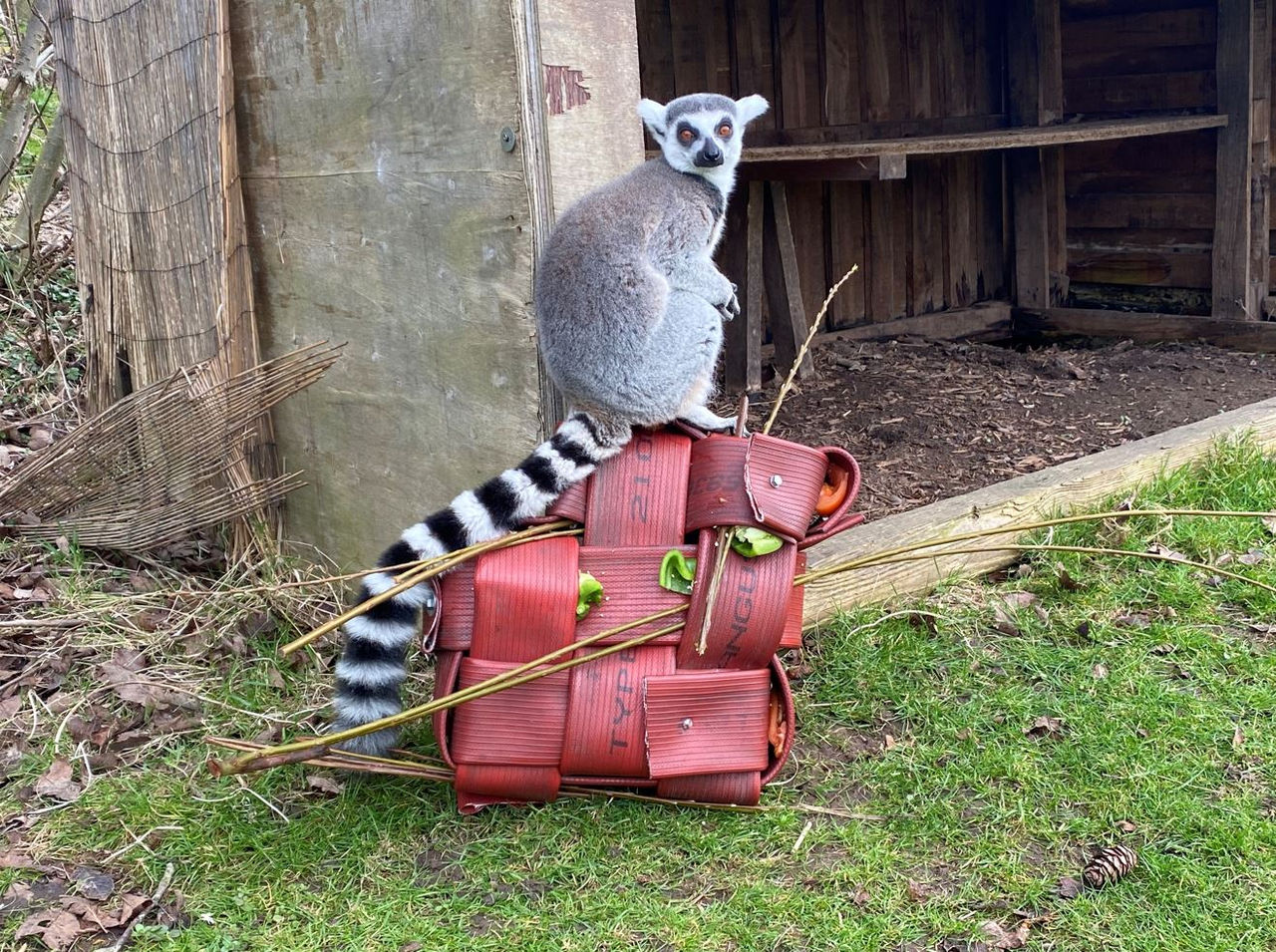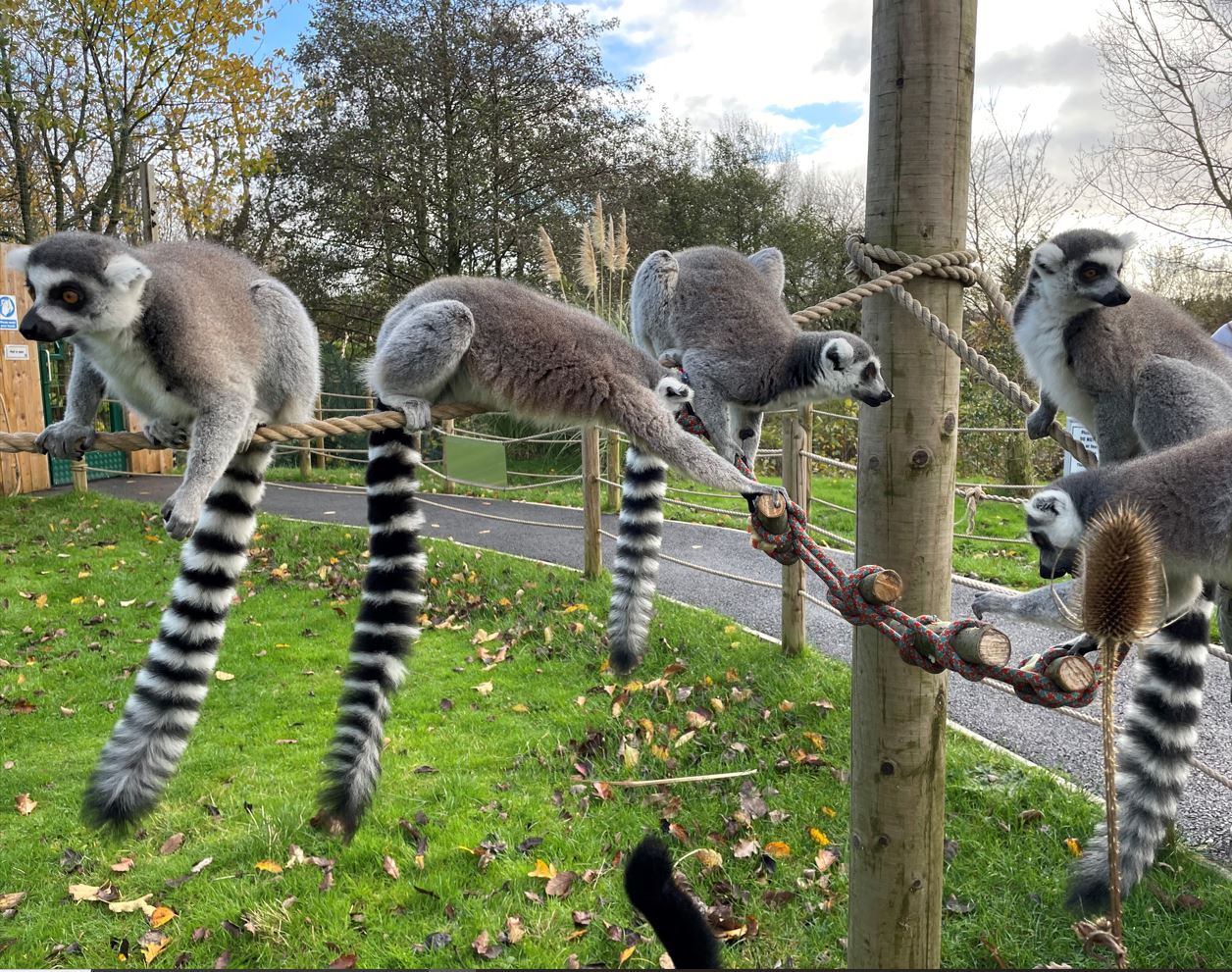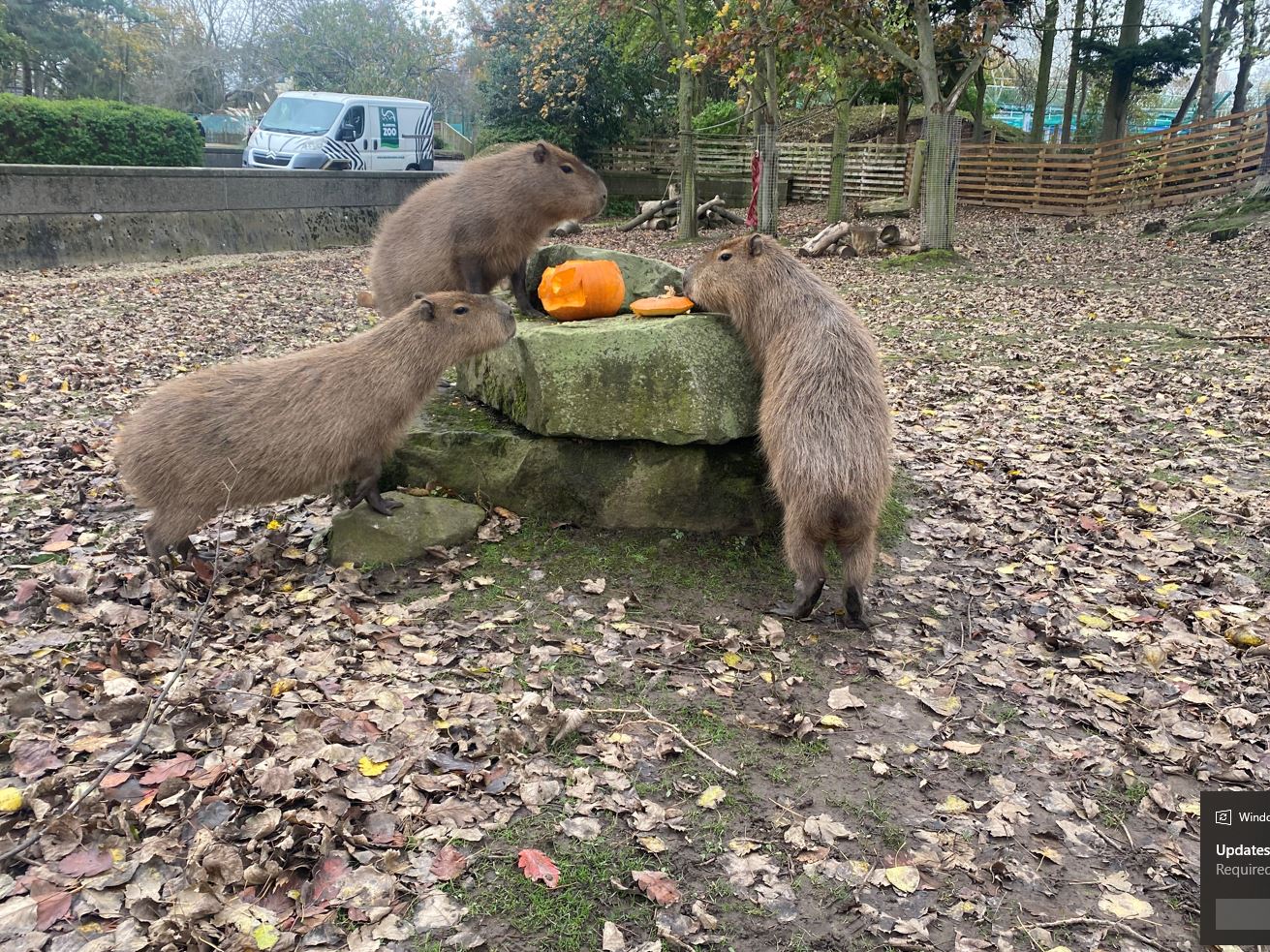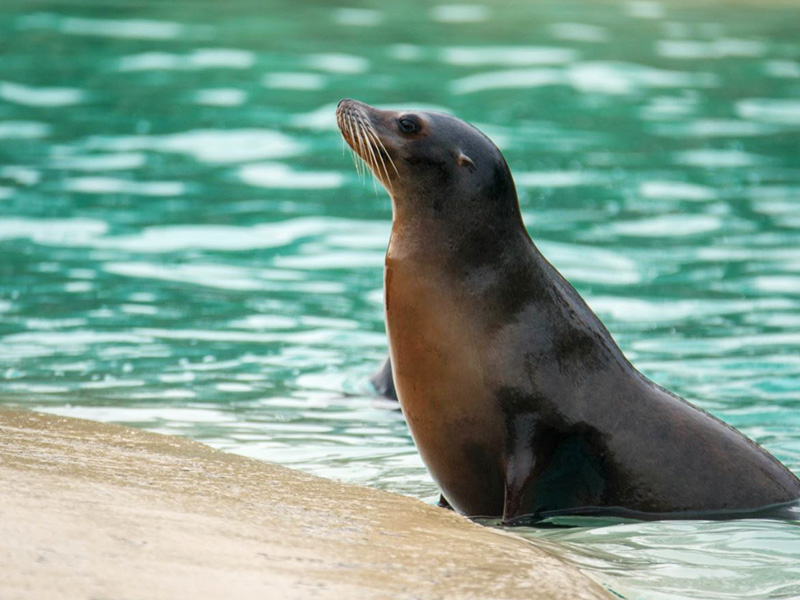Hurry! Become a member and save 20%!
Enrichment
What is enrichment?
Enrichment is the name given to approaches and methods used to improve the well-being of the animals in our care.
Here at Blackpool Zoo, a huge part of the care we provide is to encourage the natural abilities and behaviours of our animals within their environments, this can be socially, mentally, physically, or behaviourally.
Enrichment provides the opportunity of choice and challenge to our animals which replicates similar behaviour patterns they would exhibit in the wild.

Cognitive
Providing our animals with a challenge or puzzles to solve helps with mental stimulation, this is particularly important for species such as orangutans, gorillas and even some parrots which have a similar cognitive ability to young toddlers!

Social
Social interactions such as play or grooming are an important part of some animals’ behaviour, however, some species may require a solitary environment in order to replicate their natural behaviour. Social enrichment includes housing our animals in suitable social groups.

Food
This is a big part of some of our animal’s (and keepers) day! Rather than simply filling a bowl or placing the food on the floor, our keepers will provide our animal’s diet in a variety of ways such as scatter feeds, freezing foods or even hiding it within their enclosure to promote foraging.

Sensory
Just like us, animals use their sense of smell, sound, sight, taste, and touch to navigate their environment. Sometimes, we introduce new sensory items such as herbs, spices even perfumes that our animals may not have come across before encouraging different behavioural responses.

Physical
You’ll notice our animal enclosures don’t all look the same, we design our exhibits to suit the needs of our animals. For example, some of our primates may have climbing structures whereas some of our aquatic species may have large bodies of water to display natural behaviours.

Training as enrichment
At Blackpool Zoo, we support the science behind animal training being a form of enrichment for animals.
For many species here at Blackpool Zoo, we use positive reinforcement training. A technique where we train and reward behaviours which can assist with health checks, animal transports and husbandry. We ensure all the training we do at Blackpool Zoo has a benefit for the animal and helps to educate our visitors.
For example, you may see our Californian sea lions at one of the training demonstrations at the Active Oceans Arena, you may also see the keepers carrying out health checks for our Asian elephants so we can continue to support improving the care of elephants here at Blackpool Zoo and in the wild.
Natural or unnatural enrichment
When you visit Blackpool Zoo, you will see enrichment provided for our animals that they may not come across in the wild such as firehose, plastic boomer balls or barrels.
The enrichment used at Blackpool Zoo is designed to replicate the natural behaviours of animals in the wild, however, we do not have all the resources that the wild provides therefore, we can use different materials to replicate this.
For example, a primate may use vines or leaves to build a hammock or nest to sleep or rest in, here at Blackpool Zoo we can provide a firehose hammock so the same behaviours can be displayed.
Enrichment Committee
Blackpool Zoo’s Enrichment Committee is made up of an experienced team of keepers and staff, who meet regularly to evaluate current forms of enrichment and create new ones.
A larger network of Zoo staff also play an important role in enrichment planning – whether it’s our maintenance team working on enclosure design, our grounds team collecting browse and plants to feed our animals or the education teams working with visiting groups and students to create enrichment or to carry out research into animal behaviour.